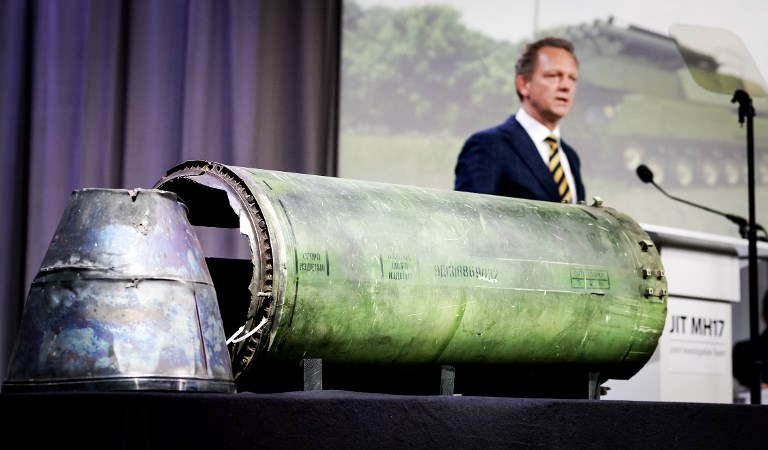THE HAGUE — Ukraine is continuing to build its case that Russia has violated the International Convention for the Suppression of the Financing of Terrorism and the Convention on the Elimination of All Forms of Racial Discrimination.
Ukrainian Ambassador to the Netherlands Vsevolod Chentsov personally brought a memorandum on Russia’s violations of the conventions to the International Court of Justice or ICJ in The Hague on June 12.
Talking exclusively to the Kyiv Post, the Ukrainian diplomat said the submission of the memorandum, along with supporting evidence, was a very important development.
“(The memorandum) contains all the facts and arguments on which our case is built,” Chentsov said.
“It will be the point of reference for the subsequent discussion of the parties during the next stages, including the oral hearings. The Russian Federation now has to respond to this document. After that, the timetable for the next procedural steps will be set.”
Along with the memorandum, Ukraine submitted a huge amount of evidence – over 1,000 annexes in 28 separate volumes, Chentsov said.
“That evidence is summarized in Ukraine’s memorandum, but the full set of documents annexed to it demonstrates how well-documented Russia’s violations are,” the ambassador said.

Peace Palace in The Hague, The Netherlands, seat of the International Courte of Juctice. (Courtesy (Somer))
“This evidence includes authoritative reports by international organizations, witness statements, original criminal investigation records, telephone intercepts, and many other documents. Ukraine has also submitted evidence assembled by the Joint Investigation Team establishing that the 53rd Anti-Aircraft Missile Brigade of the Russian Armed Forces is responsible for supplying the Buk missile that shot down (Malaysia Airlines) Flight MH17.”

Vsevolod Chentsov
Ukrainian Ambassador to The Netherland (Somer)
Flight MH17 was shot down over Russian-occupied Ukraine on July 17, 2014, killing all 298 passengers and crew on board. A Dutch led investigation into the shooting down of the plane has established that MH17 was downed by a Buk missile fired by a launcher from Russia’s 53rd Anti-Aircraft Missile Brigade, based in Kursk, that had been brought into Ukraine from Russia.
The ambassador said Ukrainian’s case focuses on Russia’s support for terrorist acts on Ukrainian territory and Russian repression of ethnic Ukrainians and Crimean Tartars in the Russian-occupied Ukrainian territory of Crimea.
“These violations of international law have arisen in the context of Russia’s broader campaign of aggression,” Chentsov said. “Ukraine’s legal claims focus on specific treaty violations over which the ICJ has jurisdiction. The focus of the ICJ case on financing terrorism and racial discrimination does not imply that other Russian actions are legal. The Russian Federation’s aggression against Ukraine violates many other rules of international law, including the UN Charter, and Ukraine will continue its efforts to hold the Russian Federation to account for violating its obligations, using all means and forums available.”
Russia has until July 12, 2019, to submit its counter-memorandum.
Ukraine launched its case against Russia at the ICJ in January 2017. In April 2017, the ICJ issued a provisional ruling that ordered the Russian Federation to refrain from limiting the ability of the Crimean Tatar community to maintain its representative institutions, including the Crimean Tatar parliament, the Mejlis.
The court also ordered Russia to ensure tuition is provided in Crimea in the Ukrainian language.
Ukraine’s memorandum demands that Russia cease its violations of the terrorism financing and racial discrimination conventions immediately, and pay financial compensation to Ukraine for the harm suffered by Ukraine and the Ukrainian people as a result of its violations.



